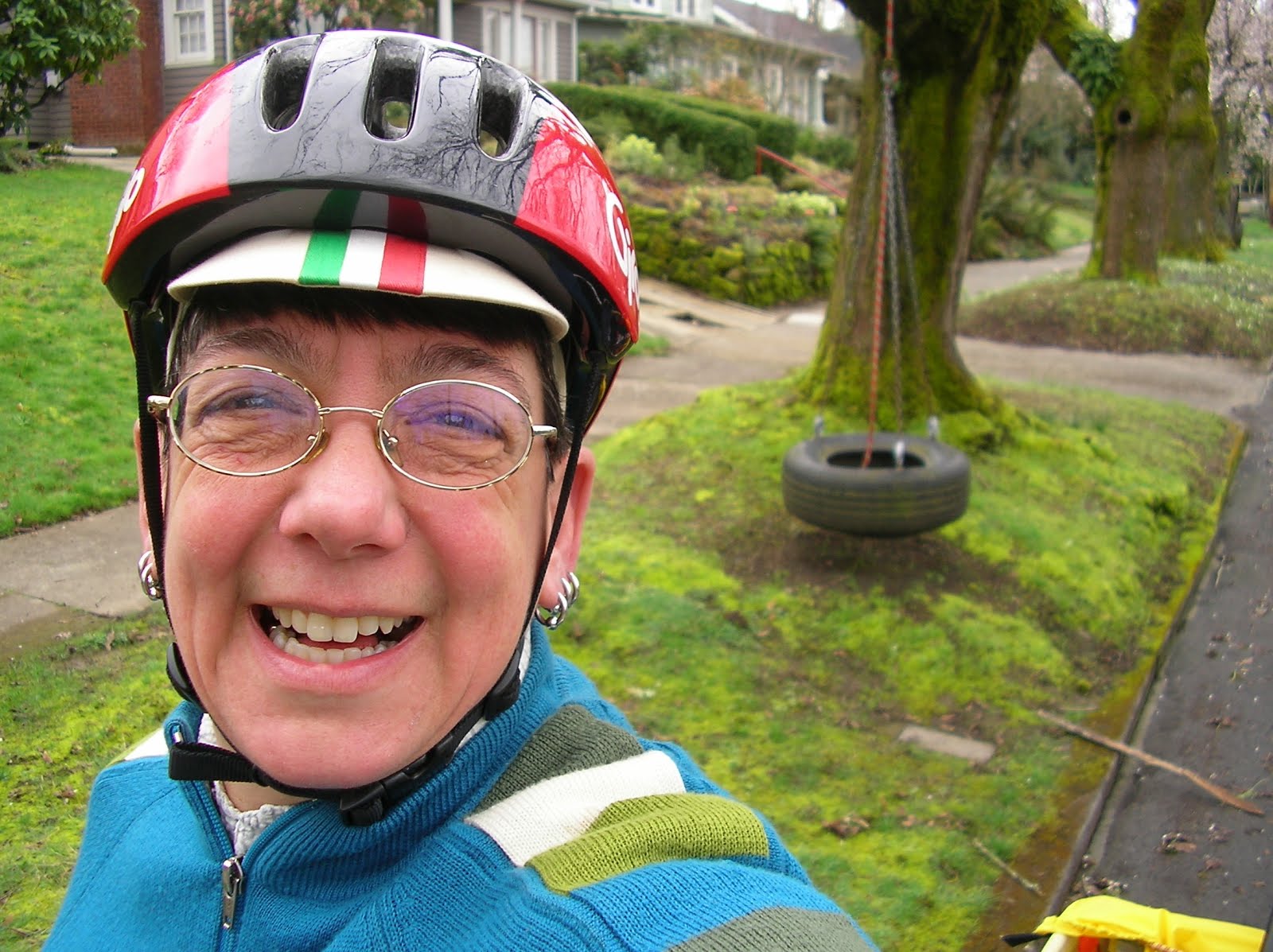I recently scored a copy of the 2014 book Pedal Portland by Todd Roll.
It’s a great book with excellent routes and easy-to-read maps, and includes a number of routes that echo some of the Sunday Parkways routes, so you know they’re mostly easy, enjoyable rides.
The challenge is that the book was released in 2014, before thousands of homeless people began camping along car-free paths like the Springwater Corridor and Springwater South. I used to ride these paths pretty frequently, but when I began getting harassed and even physically threatened by men camping and running bicycle “chop shop” operations in the bushes along the path, I made the sad decision to stop riding alone there.
Now that my health has returned enough for me to enjoy some longer rides, I’d love to ride out there again, but I don’t dare. In 2022, Portland’s homeless population has exploded all over the city, with encampments popping up everywhere from the Springwater Corridor to Laurelhurst Parkand, and several dozen large encampments near freeway ramps and on residential side streets.
Most of the people living in these encampments are not dangerous; they’re just unable to find affordable housing and often unable to find and keep steady employment due to a host of circumstances and a lack of relationships. But some homeless people are suffering from substance addiction, untreated mental illness and other issues that have rendered them angry and willing to commit violence to get what they need to survive. The last time I rode on the Springwater, back in 2016 or so, I was accosted by two men who’d laid trip wires across the path in an effort to make riders crash so they could steal their bikes. I’d seen the trip wire, and was trying to turn around and find a street that would lead me off the path. They ran map to me and yelled that they wanted to buy my bike. I yelled, “No thanks!” and began to pedal away.
One of the mend caught up to me, grabbed at my jacket and tried to make me crash. I kicked out at him from the side, knocked him down and pedaled furiously until I was certain they couldn’t catch up. I continued my ride along residential streets and took a shortcut back home.
When I got home I called the police department’s non-emergency number and told someone what had happened. I was informed that, due to understaffing, they would not send someone out there right away, and that I should just avoid riding along the Springwater “for awhile, I’m sorry I can’t tell you how long.”
When I reached out to fellow bike riders about it on a bike chat site, and the mostly male respondents told me I needed to learn some self-defense and “take back the Springwater.” A couple invited me to consider riding with a gun concealed beneath my jacket. None of these responses appealed to me and in fact made me feel more isolated than ever.
Six years later, I still avoid the Springwater. So has the City of Portland; since 2017 their Sunday Parkways routes have no longer included the path and so far there are no plans to change that. Because the simple truth is that there are simply too many people camping outside all over the east side of Portland, and not enough places for them to live safely and affordably. It feels like the city government has given up, calling it a “national” problem and bringing all the larger issues into the conversation whenever someone asks pointed questions about zoning and development.
The truth is that yes, capitalism is to blame. And yes, a LOT more people are living closer to the edge than ever before. But with the polarization happening everywhere, and more and more elected officials having washed their hands of the social compact, there remains very little that I can do beyond my small circle of influence. And so I revise routes, staying away from places where campsites are bleeding out onto multi-use paths, and into city parks. I stick to quiet streets deep in the heart of residential areas that are away from the conflicts, and carry a stouter lock than I used to.
I am also aware that having a fancy bike makes me more of a target for thieves anywhere I park.
So I am looking for a successor to the Rivvy. I will likely transfer parts to a less-flashy frame and let this one go. I’m considering this possibility as a path of lesser resistance. I don’t want to, and should have to, participate in some kind of “arms race” to keep me and my bicycle safe on a neighborhood ride. Is that expressing too much “privilege” in the face of so much need? Or is it simply a desire to live quietly and to avoid the fray more and more as I get older? I’m not invincible and I don’t want to feel like I have to be on high alerts whenever I leave my home. Maybe that’s privilege, or maybe it’s just a reflection of my 0ce on the timeline.
Feel free to scold me if you think I ought to be a martyr for some utopian greater good.
I’m too old to utopias anymore.
..::sigh::..
I’ll be taking more bike rides as the days get warmer and dryer. And I’ll be mindful of where I ride.
That’s the best I can do.
If you go out this week, happy riding.



